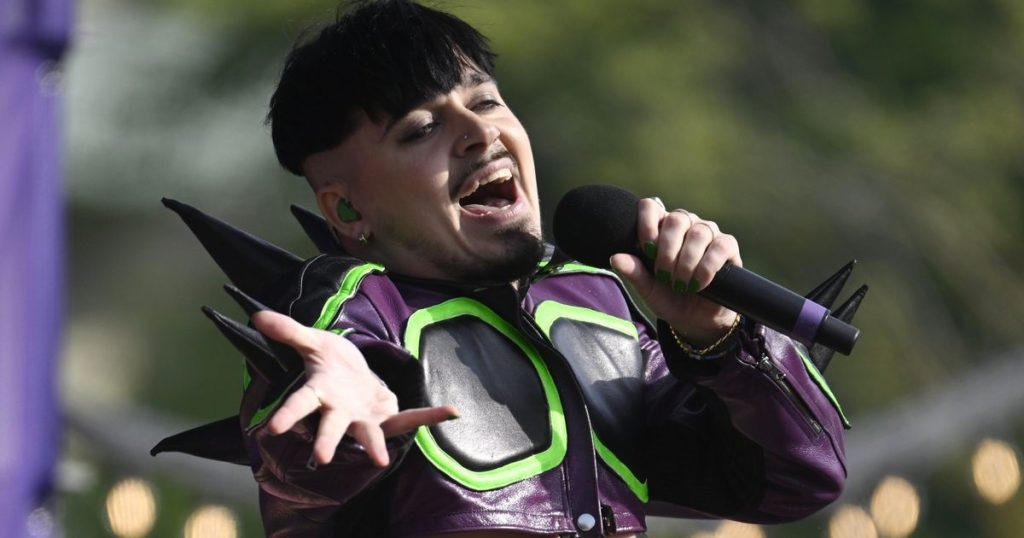Kaarija, a contestant from Finland in the 2023 Eurovision Song Contest, was expected to announce the points given by Finland for the 2024 competition. However, he withdrew abruptly amid controversy. The singer faced backlash after a video of him interacting with Israel’s 2024 contestant, Eden Golan, surfaced online. Pro-Palestine protestors called for a boycott of Eurovision due to Israel’s conflict with Hamas, prompting criticism towards Kaarija.
The Finnish singer posted on his Instagram story that announcing the points “does not feel right” after the uproar over the video with Eden. The video showed them dancing together, leading to accusations of making a political statement. Kaarija clarified that the video was not an endorsement of any kind and requested that it be taken down. Despite his efforts to explain, he faced criticism for his actions, with some calling him a coward for apologizing for dancing with a Jewish person.
In response to the controversy, Kaarija decided to step down from being the spokesperson for the Finnish jury in the Eurovision Song Contest. The Finnish broadcaster YLE announced that radio journalist Toni Laaksonen would replace Kaarija as the jury spokesperson. The incident highlighted the ongoing tensions surrounding the Eurovision competition, with protestors demanding Israel’s removal and raising concerns about political statements made by participants.
Israel’s Eden Golan, the contestant involved in the video with Kaarija, hopes to win the 2024 Eurovision contest with her song, “Hurricane.” The incident with Kaarija further fueled the debate around the annual music competition and its political implications. Despite efforts to keep the event focused on music and culture, external factors like geopolitical conflicts continue to influence the Eurovision Song Contest.
Pro-Palestine protestors intensified their actions against Eurovision, demonstrating outside the Malmo Stadium and expressing their displeasure with Israel’s participation in the contest. The video with Kaarija and Eden added fuel to the fire, leading to a wider discussion about the intersection of music, politics, and activism on the Eurovision stage. Kaarija’s decision to withdraw highlighted the challenges faced by participants in navigating these sensitive issues.
Overall, the controversy surrounding Kaarija’s involvement in a video with Israel’s contestant Eden Golan highlighted the complex dynamics at play in the Eurovision Song Contest. The incident underscored the broader geopolitical context in which the competition takes place, with tensions and conflicts impacting the event. As the Eurovision contest continues to evolve, participants and organizers face the challenge of balancing music and entertainment with the political realities of the world around them.


